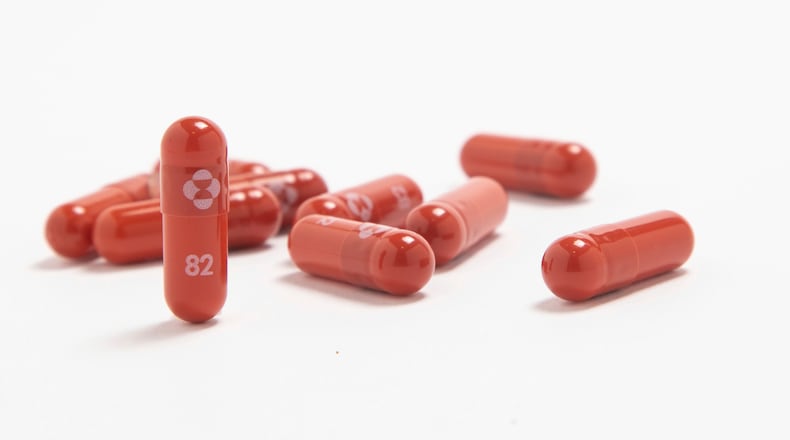Local experts quoted in this article are:
- Dr. Roberto Colón, chief medical officer at Premier Health’s Miami Valley Hospital.
- Dr. Jeffrey Weinstein, patient safety officer at Kettering Health.
- Dr. Robert W. Frenck Jr., professor of pediatrics at Cincinnati Children’s Hospital Medical Center, director of the Gamble Center for Vaccine Research and the immunization program medical director of the Ohio American Academy of Pediatrics.
- Sara Paton, epidemiology professor at Wright State University.
Q: Oral antiviral pills from Merck and Pfizer could be soon approved to treat COVID-19. Is it still worth getting the COVID-19 vaccine if these become widely available?
Colón: Absolutely! The vaccines remain our best line of defense against COVID-19 as they help prevent the disease in the first place. The new antiviral treatments should be viewed as an additional tool when vaccines fail or in those cases where someone is not able to receive a vaccination. In medicine, prevention is always the preferred strategy, and this is what vaccines do.
Weinstein: Prevention of a disease is always better than seeking a cure after getting infected. These drugs will be a great step forward in our ability to treat COVID-19, but they only work if taken early in the course of infection. Vaccination cuts off the pattern of transmission in the community by limiting the number of people who get infected. Most of the individuals being hospitalized and those dying from COVID-19 are unvaccinated.
Credit: Submitted
Credit: Submitted
Q: How accurate are at-home COVID-19 test kits?
Paton: This depends on the test that is used, but in general these tests are very good at identifying people who have the disease. Around 85% of people who are infected will test positive. This percent is higher for people who are having symptoms and during the first week of infection.
Credit: © Wright State University Photo
Credit: © Wright State University Photo
Q: When is full approval by the FDA expected for Moderna and Johnson & Johnson vaccines?
Frenck: The requirement the FDA used for a vaccine to be available by emergency use authorization was at least two months of safety data on at least 50% of the participants in the clinical trial. For approval, the FDA has to have six months of data from the time of the last participant in the trial. That is why Pfizer was given approval in about August. My guess is that Moderna and J&J are getting close to the six month time point. So, the best I can say is that I would expect a decision from the FDA “soon.”
Q: When do you expect Moderna or Johnson & Johnson will be approved for children?
Frenck: Moderna has submitted their adolescent data (12-17) to the FDA. It still is under review. The FDA will make a decision on lowering the age for the emergency use authorization based on the safety and immunogenicity of the vaccine in the adolescent group. J&J has not conducted a trial in adolescents.
Q: When do you expect any coronavirus vaccine will be approved for children under 5?
Frenck: Based on the status of the clinical trials in the kids under 5 years of age, I don’t see a vaccine for under 5 before late spring, early summer.
About the Author





